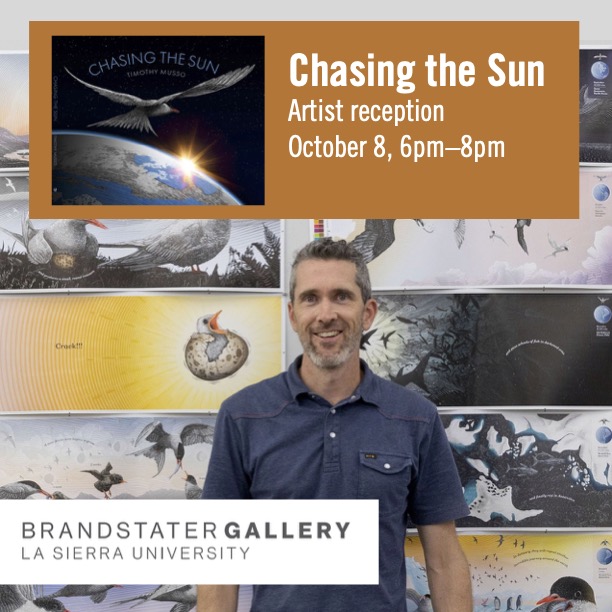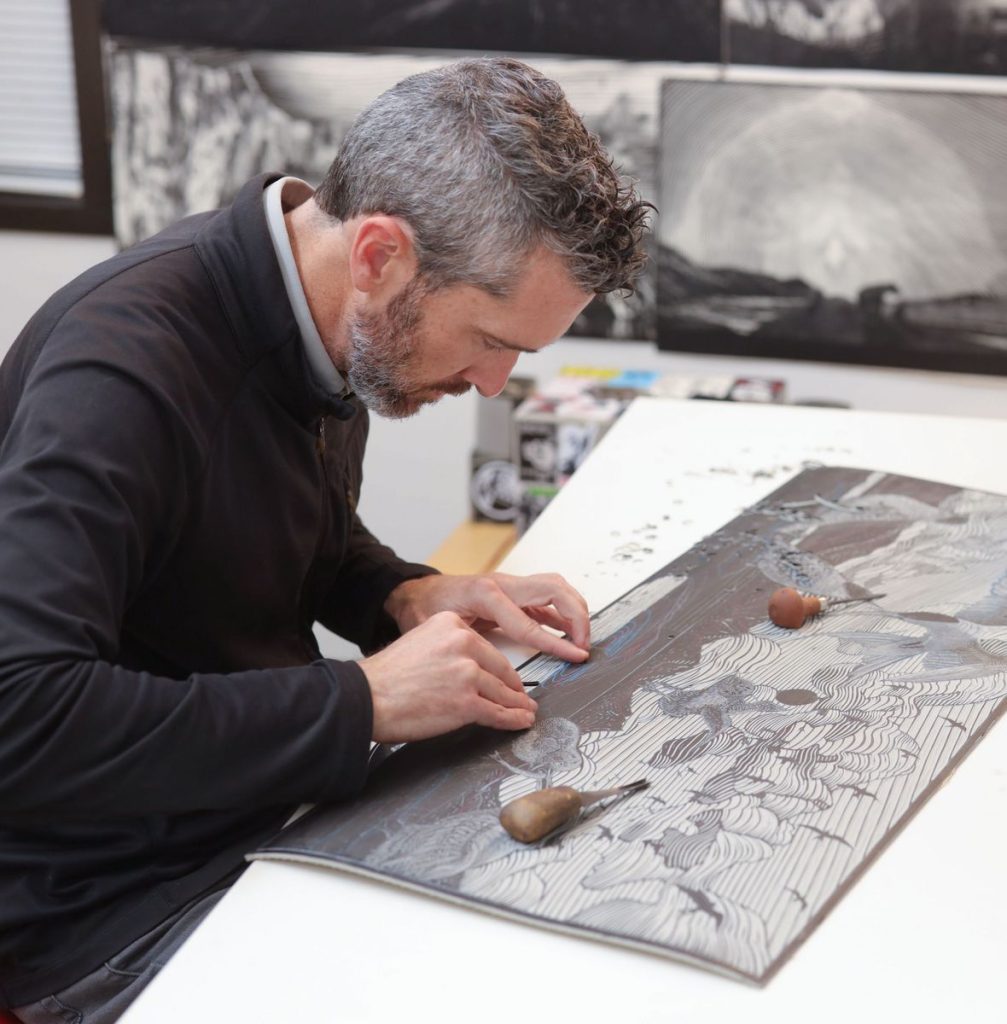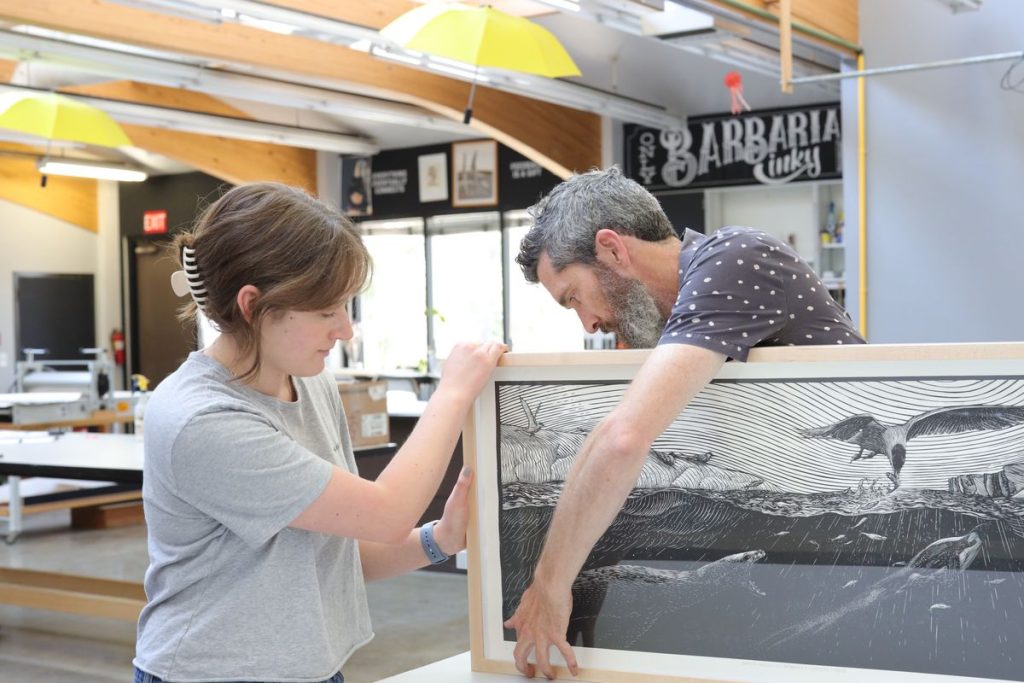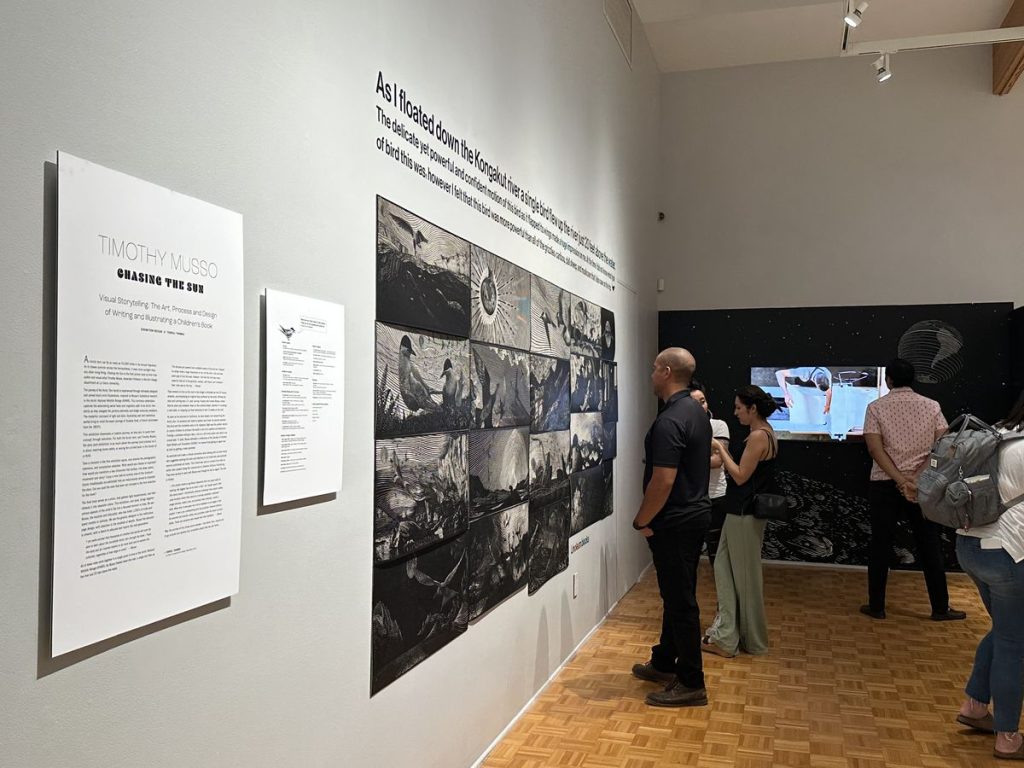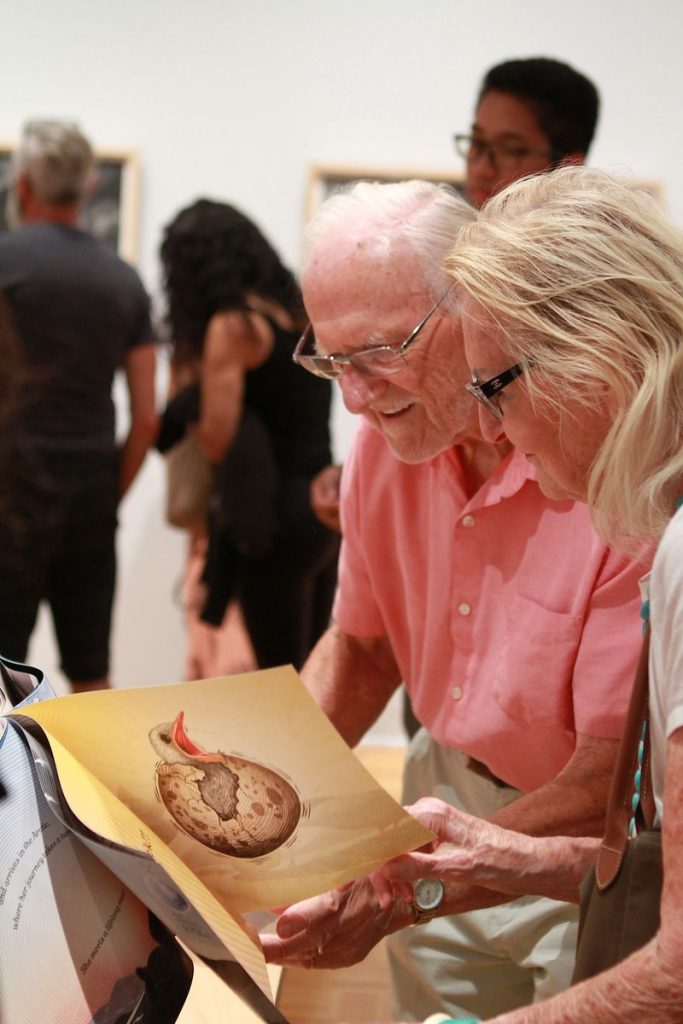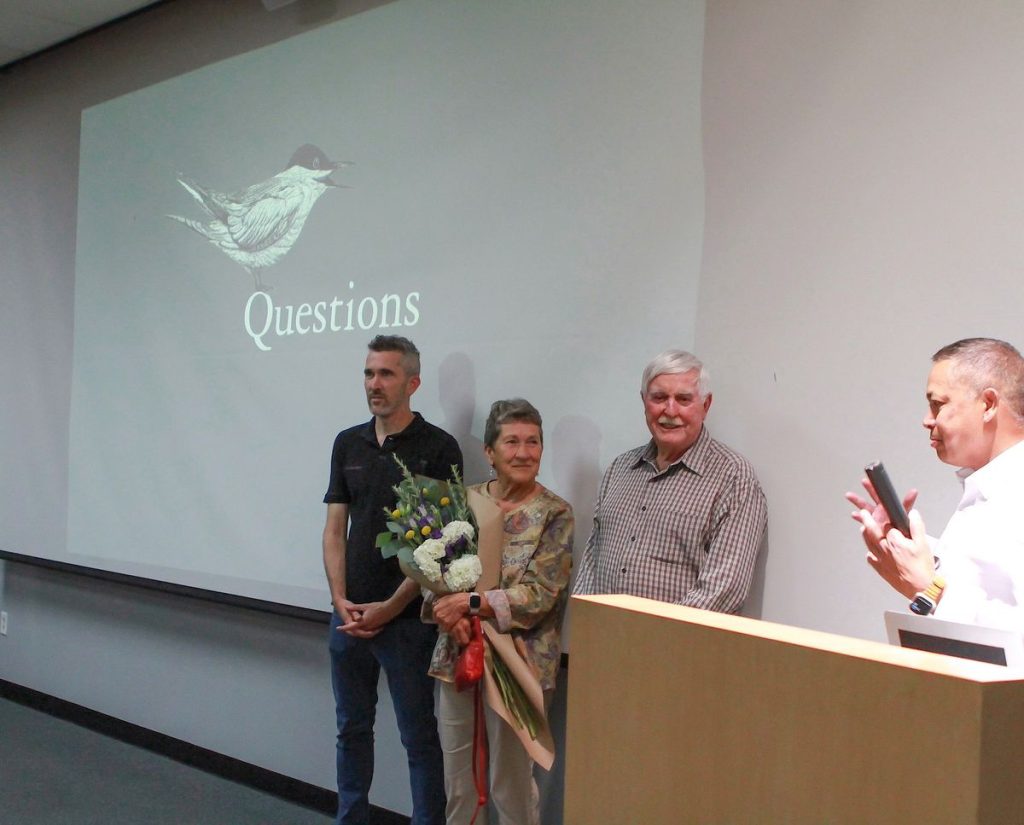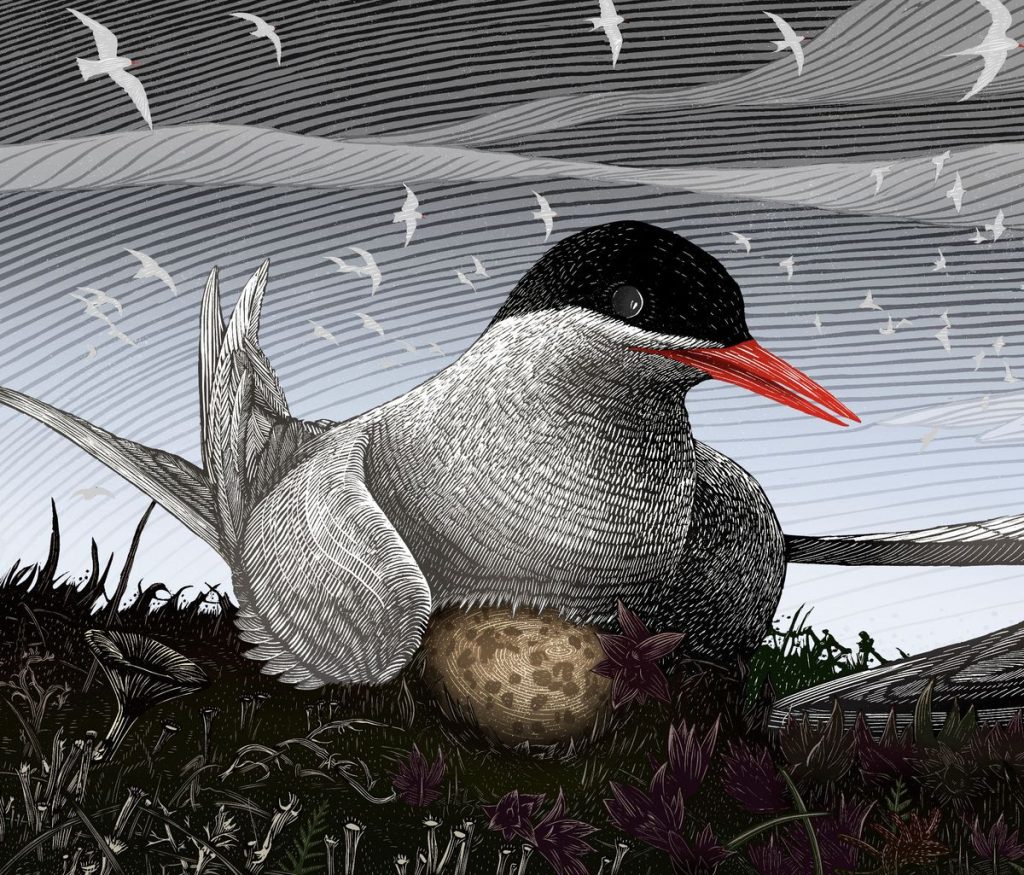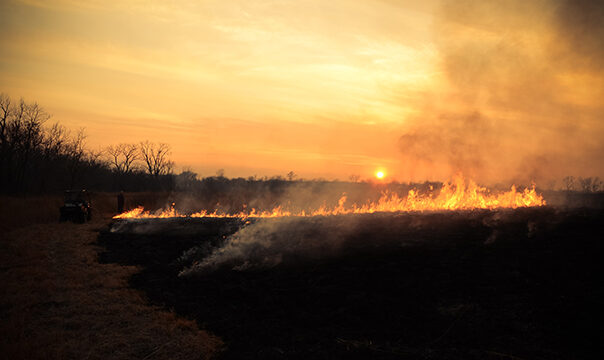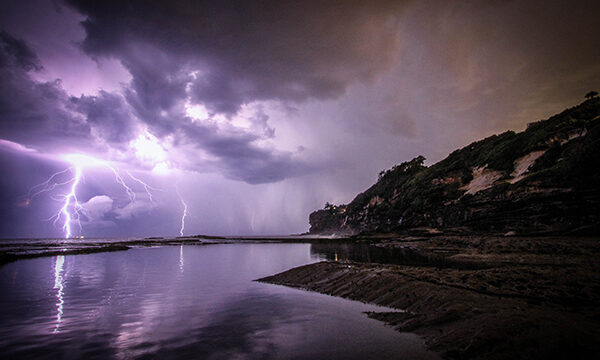Volume on the Alaska’s Arctic tern receives positive reviews from critics.
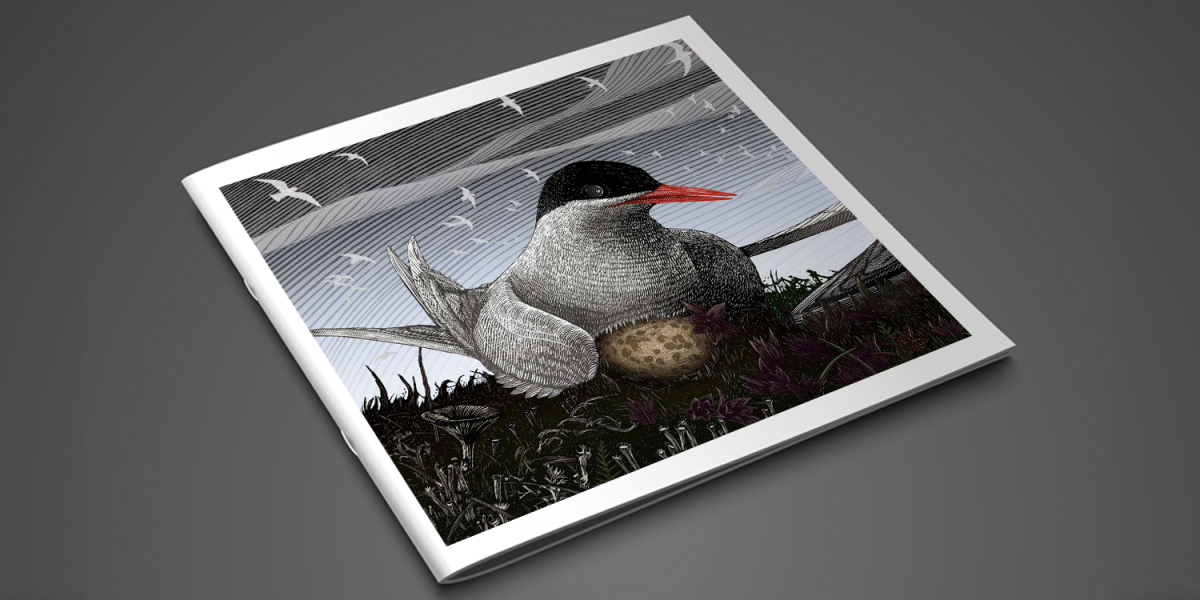
It was a brief glimpse, several seconds in duration, but the way the Arctic tern winged so elegantly overhead that day in Alaska’s northern reaches, Timothy Musso knew immediately that these magical creatures would be the subject of the children’s picture book he’d had in mind.
It was June 2018 and the summer solstice with its endless sun arching overhead was underway. Musso, an artist whose wood and linocut prints derive from yearly wilderness expeditions, was on a rafting trip with friends in the Arctic National Wildlife Refuge along the Kongakut River, which flows north from the Brooks Range to the Beaufort Sea. Grizzly bears, surprisingly varied in color, appeared along the river’s banks. At one point, Musso spotted a tern gracefully wheeling overhead on sleek, angel-like wings, although at the time he did not know what species of bird it was. Then he saw another. The slender animals, weighing all of three ounces with smooth, black patches on their heads, migrate back and forth between the Arctic and Antarctica, following food sources and the sun across hemispheres, sometimes partially sleeping in flight while covering as many as 50,000 miles in a year – theirs is the longest known migration in the animal kingdom.
“When I saw the way they flew, it was unlike any bird I’ve ever seen, the way they moved. I knew that there was something special about them because they flew so beautifully,” Musso, an associate professor in the Art + Design department at La Sierra University, said. “Some people I was with on that rafting trip told me, ‘That’s an Arctic tern and it has an amazing migration.’ It clicked in me at that moment, this is what I want to do a picture book about.”
Five years later, after hundreds of hours of research and painstaking work sketching compositions and creating detailed, hand-cut wood reliefs of the terns and other iconic migratory animals such as whales and caribou, Musso completed his book, Chasing the Sun, and it was accepted by a publisher. The 40-page, visually intricate work, illustrated and written by Musso and with typography by Rita Marshall, was released in August by The Creative Company.
On Sunday, October 8, Musso held an artist’s reception and book launch event at La Sierra’s Brandstater Gallery. The show includes 20 linocut prints from the book, final art, state proofs, sketches, and a short process video. The exhibit is curated by Art + Design Chair Terrill Thomas and is currently on display.
“This luminous celebration captures the astonishing aerial feats and migratory path of an Arctic tern family as they navigate the perilous elements and dodge voracious predators. The masterful command of light and dark, illustrating vast and mysterious worlds bring to mind the wood carvings of Gustave Doré, a French Printmaker from the 1800s,” notes an exhibition statement. “This exhibition showcases a creative journey, no less epic in scale from concept through execution. For both the Arctic tern, and Timothy Musso, the story (and exhibition) is as much about the journey (and process) as it is about reaching home safely or seeing the printed book in the hands of a child.”
With key scientific information imparted in easily understood story-form language, Chasing the Sun takes readers of all ages on a visual odyssey into the life of an Arctic tern family, depicting the birds’ environments, life events, and potential deadly encounters with other wildlife each month of their incredible zigzagging migratory journey between Earth’s poles. Images on the book’s pages began as sketches that were based on photographs and research, with final images carved with gouges into blocks of wood that were then coated with black ink using a larger roller. Large sheets of paper were pressed onto the inked blocks, creating a stamped effect, with detailed, intricate images emerging.
“I would hope that people see this animal as a metaphor for exploration and experiencing new things, and traveling and being fearless,” Musso said. “And I think there’s also a sense of humility,” considering the birds’ mysterious navigational skills, of which scientists have little knowledge. These innate abilities allow the terns to redirect to their destinations when blown thousands of miles off course by a storm over the ocean.
Musso’s artwork from the book was also displayed this summer at the Newport Beach Public Library. Since its publication, Chasing the Sun has received positive reviews including from Publisher’s Weekly, which described the work as “a visually stunning picture book that blends accuracy and a sense of wonder. … Inconspicuous maps note the month and global location of terns traveling to and from nesting grounds in this bravura sequence, which finds poetry in scientific observation.”
A recent review from Children’s Literature includes the following summary, “Musso’s handmade wood carvings are mesmerizing, majestic illustrations that hook readers in to the journey. Young readers may wonder why there are bands of lines throughout each illustration and will be delighted to understand their meaning later in the book.”
The inspiration for Musso’s book is linked to his family.
“I’ve been thinking about doing this book for about a decade since my nieces and nephews were first born,” Musso said. “I wanted to make one, but I didn’t know what to make it about. And then when I saw that bird, like instantly it clicked, that’s it, I’m making [it] about that. When I got back [from Alaska] I did research and there were no other picture books about Arctic terns that I could find.”
The 2018 trek was Musso’s second to Alaska. As a boy he had traveled through its southern regions in a motorhome with his family. Decades later, the journey into the roadless Arctic Circle to raft one of its icy rivers involved a flight northward from Fairbanks to the indigenous Arctic Village, and then another flight further north over the Brooks Range to begin the two-week rafting adventure.
In developing Chasing the Sun, Musso drew upon information researched from various sources including The Moore Lab of Zoology at Occidental College in Los Angeles where he captured an understanding of the bird’s secondary feathers. He received assistance from various La Sierra University campus members including avid birders Vernon Howe, professor emeritus of mathematics; his son, Andrew Howe, a current history professor; and Vernon’s wife Winona Howe, professor emeritus of English, who provided writing guidance. Additionally, La Sierra Art + Design students Adrianna Rodriguez, Jackie Hernandez, Kayla Perkins, Alana Ciccarelli, and Perry Tahir assisted with printing and framing tasks.
Musso grew up in the wild foothills of the California Mother Lode, so named for the seam of gold first discovered by Europeans in 1848. Musso’s childhood was filled with exploring the forests, rivers, and mountains of the northern Sierra Nevada wilderness. As an exhibiting artist and naturalist, Musso creates wood and linocut prints, often in large scale based on images and rubbings of trees, plants, and other elements of nature he obtains while on weeks-long treks that function as sabbaticals. His expeditions have taken him throughout the American Southwest, the Sierra Nevadas, and the Pacific Crest Trail. He has also explored the mountains of New Zealand.
Recent exhibits of his work have taken place at the Missoula Art Museum in Missoula, Montana in 2022, the Wönzimer Gallery in Los Angeles in 2021, and the Sydney Contemporary Art Fair in Sydney, Australia in 2019. His art is among permanent collections of the Fort Wayne Art Museum in Indiana, the Zuckerman Museum of Art in Georgia, and Montana’s Missoula Art Museum.
This past spring Musso trekked throughout Utah’s Grand Staircase-Escalante National Monument on another artistic sabbatical. “While I was there, I was thinking that I’d love to do another book about the desert there,” Musso said. “So, I wrote a story, and I did a bunch of sketches and photos. And then as soon as I got back, this publisher [The Creative Company] said, ‘Hey, we want another book.’ So, this summer, I’ve been working on using those photos and sketches from my time in Utah and working on new compositions and new artwork and a new story.”
The original version of this story was posted on the La Sierra University news site.


